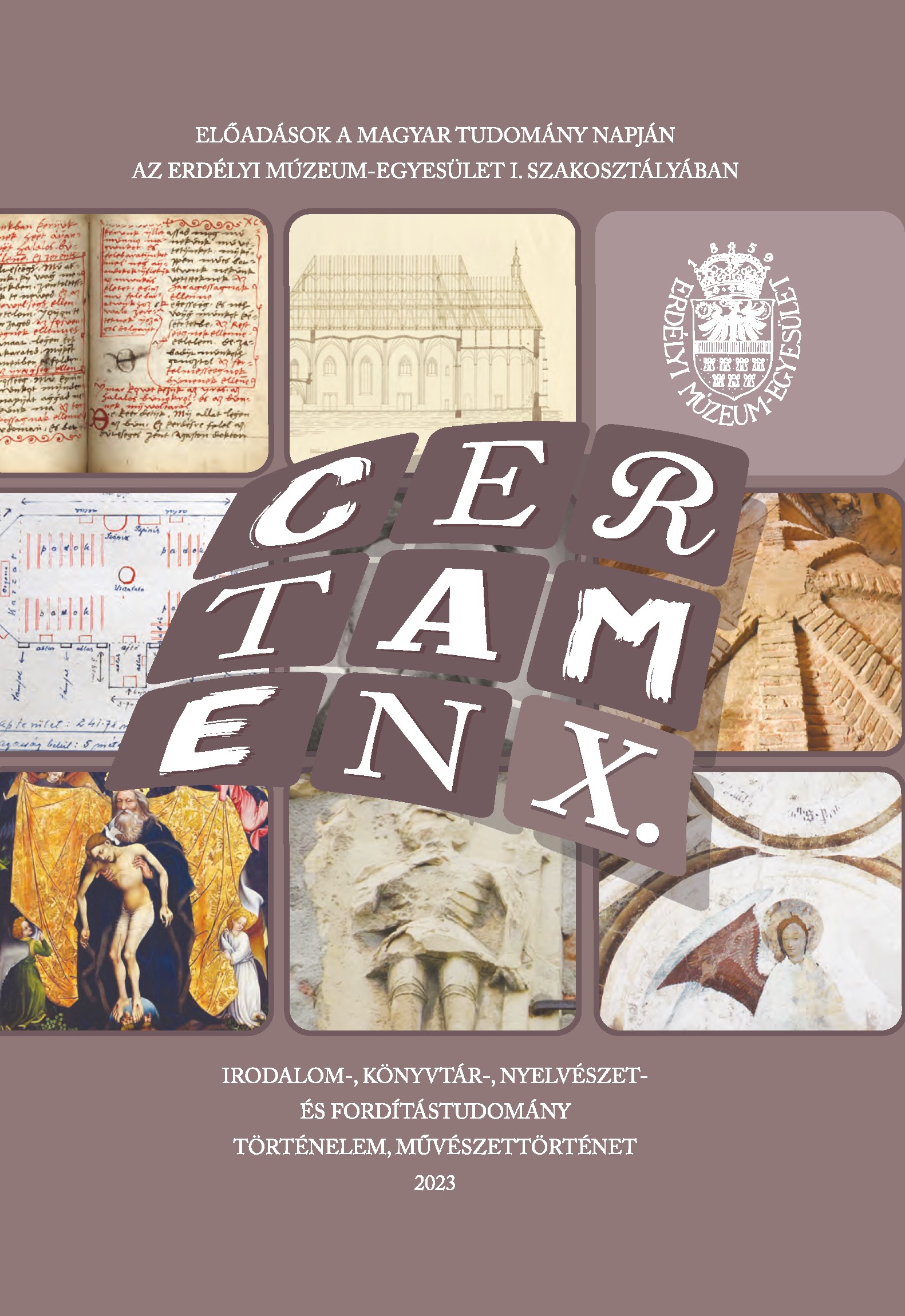A 15. századi erdélyi tartománygyűlésekről. I. (1416–1479)
On the Transylvanian Provincial Assemblies of the 15th Century. I. (1416-1479)
Author(s): András W. KovácsSubject(s): Political history, Middle Ages
Published by: Erdélyi Múzeum-Egyesület
Keywords: Transylvania; general assemblies; provincial assemblies; judicial organisation; voivode; vice-voivods; Middle Ages
Summary/Abstract: This study is analysing several aspects regarding the organization of the general assemblies in the Voivodate of Transylvania during the 15th century. The general assemblies were traditionally convoked and presided by the voivodes in Turda, for the nobles of the seven Transylvanian counties (sometimes also for the Szeklers and Saxons, on the basis of royal powers granted to the voivods). After 1412, in parallel with the increasingly rare presence of Transylvanian voivods in this province, the assemblies were no longer organized. The role of these judicial assemblies was taken over by the octaval seat of the vice-voivods. The octaval tribunals were held in this period four times a year, on the eighth day of some religious holidays in Sântimbru (Alba county). Following the cessation of the assemblies presided by voivods, the forum of appeal of the vice-voivode’ seat became the royal court. Around 1440, the vice-voivode’s tribunal was moved to Turda. Since the last third of the 14th century, the vice-voivodes also held occasional meetings of the Transylvanian nobility in Turda, and from 1421 and 1433, meetings, which were also called general assemblies. The experiences of the peasant uprising of 1437-1438, the enlargement of the political community around 1440, in the whole of medieval Hungary, the increasingly pressing Ottoman threat, which affected both Saxons and Szeklers, led to the resumption of general assemblies, this time usually under the leadership of the vice-voivodes. These gatherings were held with increasing frequency, but at irregular intervals, not only in Turda, but also in other easily accessible places (Cucerdea/ Lunca Mureșului, Cluj-Mănăștur, Cluj, Mediaș, Iernut, Târgu Mureș, Căpâlna de Sus and Târnăveni). Both the octaval vice-voievodal seat (sedes iudiciaria), held exclusively in Turda, attended by nobles, and the irregular assemblies of nobles, Szeklers and Saxons (congregatio generalis) were judicial assemblies. However, the congregations also discussed matters concerning the province as a whole, especially its defence. For the three privileged groups (nobles, Szeklers and Saxons) who were separated geographically and in terms of judicial organisation, they were the only forum for settling common problems. The general assemblies did not become permanent institutions: the change of location and the fact that they did not become the forum of appeal of the octaval court are evidence of this. They were not a legislative, but a consultative body and had no political role. Apart from the exceptional case of 1459, it was not convened at the initiative of the participants and did not become a body representing their interests against the royal or voivodal power.
Journal: Certamen
- Issue Year: 2023
- Issue No: X
- Page Range: 253-299
- Page Count: 47
- Language: Hungarian

